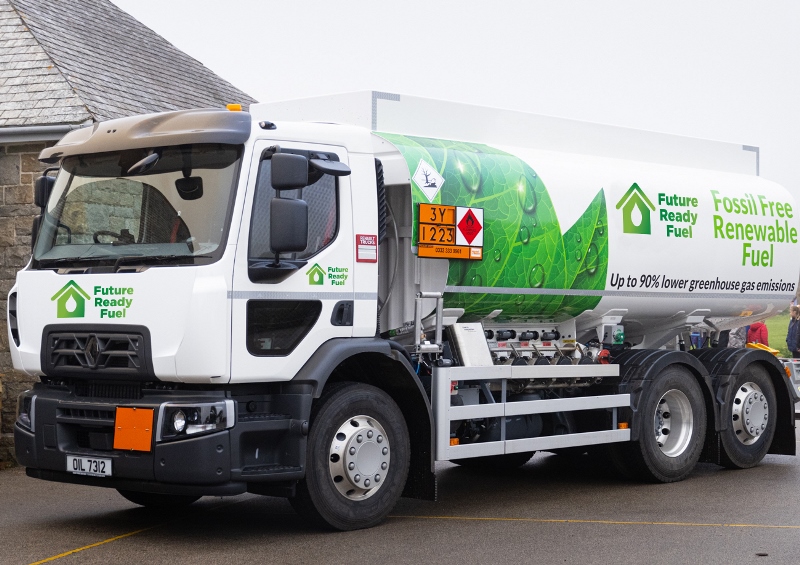
Malcolm Farrow, Head of Public Affairs at OFTEC argues that achieving net zero and tackling social inequality can go hand in hand.
Summer 2024 saw huge change in Westminster. We have a new party in government, a new prime minister, a new secretary of state for energy and hundreds of new MPs. However, in rural communities up and down the country, homes and businesses still face the same decarbonisation challenges and the same barriers to transitioning to low carbon heating. Labour now has unique opportunity to forge a new path which delivers on net zero whilst tackling social inequality.
Currently, plans for off-grid decarbonisation are somewhat in a state of limbo. The previous Conservative government proposed to phase out the installation of fossil fuel boilers and transition these properties onto heat pumps. However, after pressure from consumers and backbench MPs, plans were repeatedly put on hold and no firm policies were put in place.
This was driven by several factors. Firstly, the nature of rural off-grid housing stock makes it very difficult to switch these buildings to a heat pump. Properties typically have poor energy efficiency and require significant renovation as part of a heat pump installation. Even with the available government grants, the cost and disruption were a real barrier.
The cost-of-living crisis squeezed household finances – and government budgets – even further which meant that there hasn’t been the money to enable households to make these big investments. Weak consumer demand has also affected industry confidence and meant there weren’t enough installers to deliver on the government’s targets even if they could be met.
The existing Boiler Upgrade Scheme provides up to £7,500 for a heat pump installation, increasing deployment but disproportionally benefiting higher income households as they have the disposable income to meet the remaining cost. Some argue that as long as heat pumps are installed, that’s all that matters. However, low-income households, who typically live in poorer quality housing, are unlikely to apply, and such policies risk a growing social divide on the journey to net zero.
But could that emphasis change? Social justice is hard-wired into Labour’s DNA and could inform their approach to decarbonisation. With the right blend of policies, achieving net zero, tackling the economic inequality blighting so many rural communities and creating opportunities by fixing the skills shortage could go hand in hand. This would require policies rooted in a more holistic approach and driven by an overarching commitment to fairness, rather than one just focussing on heat pump installations.
Skills shortage
The skills shortage is an underlying challenge that has held back the rollout of heat pumps in the heating sector. It affects not just heat pump installers but all areas of the retrofit supply chain. Labour needs to deliver a skills revolution, starting from schools all the way through to college and apprenticeships. Our education system needs to give equal value to the skilled technical trades and promote the opportunities of a career in the industry.
Alongside having the workforce, increasing the pace of low carbon deployment is critical too, and can be achieved by focussing on policies to prioritise heat pumps initially where economies of scale are easiest to achieve. This means targeting urban and suburban areas which will help to bring down costs and ultimately make them more accessible for harder to treat off-grid homes.
This is key because heat pumps have a key role to play in the decarbonisation of the whole domestic heating sector. OFTEC is actively supporting the rollout through our heat pump training courses to help more installers diversify. In fact, over a third of all OFTEC training undertaken so far this year was heat pump training.
However, for some properties, heat pumps still won’t be viable. That’s not because their owners aren’t concerned about carbon emissions. Far from it, these households are often some of the most vocal and determined to be greener. For many rural off gas grid homes the existing challenges outlined above will not be easily overcome, even with more socially targeted retrofit funding. What’s overlooked here is the need for consumer choice and availability of the type of low carbon heating system which meets these individual’s needs.
Such pragmatism is important, given the political tightrope the new government has to walk. Whilst Labour is fully committed to net zero, the Party will be aware of the backlash the last government faced trying to force homes to change their heating system. As a result, during the election, Labour said this is not a route they would go down. Recent changes to the Winter Fuel Payment has also created difficulties for the government and will have a big impact on older people who live in rural areas. Labour will be cautious about the policies they push forward to this voter group.
Renewable liquid fuels
It’s increasingly clear that other alternatives will be needed. We’ve demonstrated the viability of renewable liquid fuels such as Hydrotreated Vegetable Oil (HVO) as a replacement to kerosene. With minimal disruption, a simple conversion to the boiler of less than £500 and a potential to reduce emissions by 88%, it’s an ideal solution to the problems we’ve outlined. Our survey of several thousand rural households also shows over 80% support.
We will continue to work proactively and positively with the new government to secure the policy support needed to rollout renewable liquid fuels more widely. The industry already has an extensive workforce, supply chain, training, experience and high safety standards so it is well placed to scale up the transition to renewable liquid fuels very quickly. All we need, is the green light from government.












